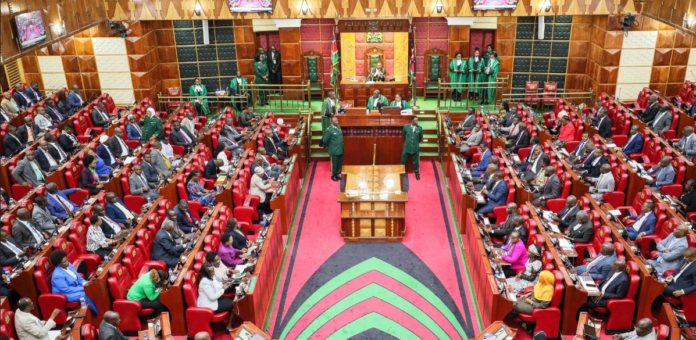Members of Parliament have rejected proposed increases in fees for birth and death certificates, citing concerns over accessibility and fairness.
The lawmakers, sitting in the Delegated Legislation Committee, also recommended revoking the Registration of Persons (Amendment) rules, which underpin the new national identity card system, referred to as Maisha Namba.
Committee Chairperson Samuel Chepkonga criticized the regulations, describing them as flawed and requiring a comprehensive review.
“On several substantive issues we have raised, a corrigenda may not suffice. You may need to republish and revoke what you have already provided because, as it stands, achieving the intended purpose will be difficult,” Chepkonga remarked during a meeting with Immigration Principal Secretary Julius Bitok on Wednesday.
The proposed rules include increased fees for identity card services, such as Sh1,000 for replacing or duplicating an ID card or altering its details. This contrasts with the previous administration, under President Uhuru Kenyatta, where ID applications were free.
Defending the regulations, Bitok said they were developed through extensive public participation.
“We conducted 820 public participation meetings across the country on Maisha Namba. We have a report capturing what Kenyans said. This initiative is critical for national security. The ID is secure, tamper-proof, and a very advanced card,” Bitok told the committee.
However, MPs questioned the inclusion of Maisha Namba in the regulations, raising concerns about its clarity. “Maisha card is a very good name; it sounds very Kenyan. But where is it in the regulations?” Chepkonga asked.
The Births and Deaths Registration (Amendment) rules propose Sh1,000 fees for registration, re-registration, or corrections in birth and death entries, services that were previously free. Other charges include Sh500 for registration of a birth or death more than six months after the event, Sh200 for certificates, and a Sh500 authentication fee for verifying certificate seals.
Bitok defended the proposed fees, arguing they were necessary to curb fraud and address inflation.
“We are charging Sh1,000 for correction of errors because there are numerous attempts to fraudulently alter documents. It’s a national security issue to prevent manipulation of the system for changing particulars,” he explained.
Despite his defence, MPs rejected the proposed fee hikes, urging the Ministry of Interior to reconsider the regulations.







